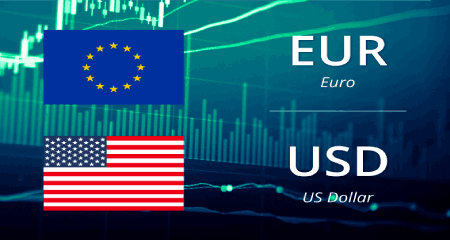
EUR/USD dips to 1.0759 as US inflation data exceeds expectations
The Euro (EUR) retreats after hitting a new two-day high as a measure of inflation in the producer side in the United States (US), suggesting the US Federal Reserve’s job is not done. The Greenback (USD) rose as interest rate traders have begun to align with the Fed’s view of three rate cuts towards 2024. At the time of writing, the EUR/USD trades at 1.0759, down 0.08%. The US Bureau of Labor Statistics (BLS) revealed that the Producer Price Index (PPI) for January increased 0.3% MoM, exceeding estimates, while the core PPI also beat forecasts and jumped sharply to 0.5% MoM from -0.1% in December.
In the 12-month to January figures, the PPI rose by 0.9%, lower than December’s, but the core PPI rose by 2%, above 1.6% estimates and December’s 1.8%. Sources cited by Bloomberg stated, “Momentum has built up in inflation over the last few years and persists in many corners of the economy despite lower prices for gasoline, basic foodstuffs, and durable goods.” The Fed closely follows the PPI because several categories of the report are used in the Fed’s preferred gauge for inflation, the Personal Consumption Expenditures (PCE). Following the data, the EUR/USD pair seesawed around the 1.0770-1.0730 range, before settling at around current exchange rates. US Treasury bond yields rose, while the US Dollar Index (DXY) edged up 0.22% at 104.50.
Other data from the US, revealed that Building Permits dropped -1.5% from 1.493 million to 1.47 million, while Housing Starts plummeted sharply -14.8%, fro 1.562 million to 1.331 million. Across the pond, the Eurozone’s (EU) economic docket was light with Germany revealing Wholesale Prices for January, which rose 0.1% MoM, but annually based dropped -2.7% below December -2.6%. On the central bank space, the European Central Bank Governing Council member Isabel Schnabel noted the central bank must be careful not to cut rates too soon and that monetary policy should remain restrictive. This is because fears of a rebound in inflation linger around the ECB’s policymakers. From a technical standpoint, the EUR/USD is bearish-biased despite staging a recovery in the last couple of days. However, if buyers push prices towards the 100-day moving average (DMA) at 1.0796, that could pave the way for challenging 1.0800. On the other hand, if sellers keep the spot price below the psychological 1.0750 area, that could open the door to test February’s 15 low of 1.0723, ahead of the 1.0700 mark.
Other data from the US, revealed that Building Permits dropped -1.5% from 1.493 million to 1.47 million, while Housing Starts plummeted sharply -14.8%, fro 1.562 million to 1.331 million. Across the pond, the Eurozone’s (EU) economic docket was light with Germany revealing Wholesale Prices for January, which rose 0.1% MoM, but annually based dropped -2.7% below December -2.6%. On the central bank space, the European Central Bank Governing Council member Isabel Schnabel noted the central bank must be careful not to cut rates too soon and that monetary policy should remain restrictive. This is because fears of a rebound in inflation linger around the ECB’s policymakers. From a technical standpoint, the EUR/USD is bearish-biased despite staging a recovery in the last couple of days. However, if buyers push prices towards the 100-day moving average (DMA) at 1.0796, that could pave the way for challenging 1.0800. On the other hand, if sellers keep the spot price below the psychological 1.0750 area, that could open the door to test February’s 15 low of 1.0723, ahead of the 1.0700 mark.
